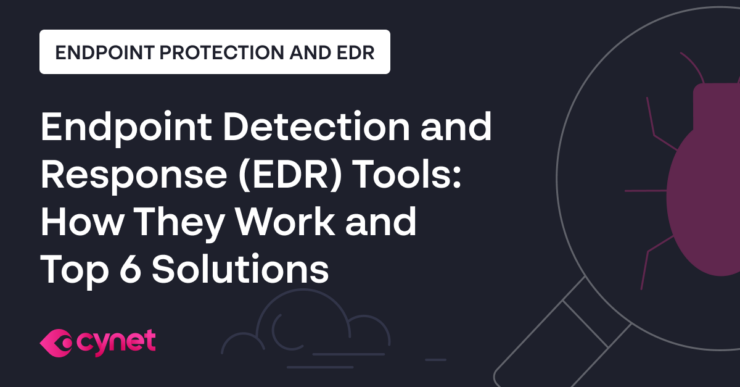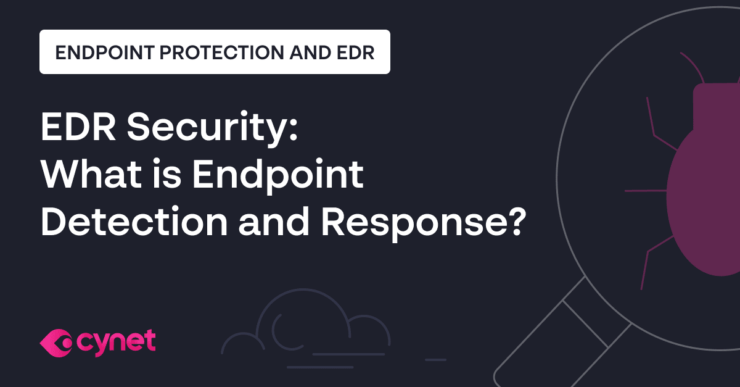January 24, 2022
Last Updated:
November 19, 2024
Cyberattacks are a threat to every business, small and large. No business is immune from attack. However, most businesses aren’t protected. Since most cyberattacks are caused by user error, it’s not hard to protect your business once you understand how to do so.
This is part of an extensive series of guides about EDR Tools.
Here are 10 reasons endpoint protection software will help you mitigate and thwart cyberattacks.
1. Cyberattacks are unexpected
Security tools are only effective when they’re in place before you get attacked. Since cyberattacks are unexpected, you need endpoint protection software in place before anything happens.
You can’t predict when, if, or how cybercriminals will attack your business. Have your IT team install endpoint protection software in as many forms as possible.
2. Data theft can happen to anyone
No business is immune to data theft; it can happen to anyone, including entrepreneurs, small businesses, and large corporations. Even non-profit organizations are subject to data theft.
No matter how small your company is, get endpoint protection software to protect against data theft.
3. BYOD policies are not secure without endpoint protection software
Do you have a Bring Your Own Device (BYOD) policy in your workplace? Many employers do, and there are benefits. However, the security risks are immense. If you’re going to allow employees to use their own devices for work, you need to increase security measures.
To increase the security of a BYOD workplace, you need endpoint protection software installed on your employees’ computers. Yes, this requires installing software on their personal devices, but if they want the privilege of using their own device, they need to compromise.
4. A data privacy violation can bankrupt your business
Data breaches often come with huge fines, depending on the infraction, industry, and data privacy laws in play. For instance, Amazon was recently fined $886 million for breaching GDPR data privacy laws. Although Amazon officials deny the allegations, they will need to defend their position in court.
Whether you’re guilty or not, even being accused of a data privacy violation can bankrupt your business. You could receive a hefty fine if you’re guilty, but you can also go bankrupt fighting your case in court.
5. A cyberattack can ruin your business’ reputation
One cyberattack can ruin your reputation. Depending on what data is stolen and/or exposed, you could end up being dragged through the mud in the news and all over social media.
In business, your reputation matters. How you’re perceived influences customer behavior. Companies with glowing reputations do plenty of business, while those with sketchy reputations tend to struggle.
Statistics published by TechJury show that 65% of companies experienced a negative impact on their reputation after a data breach. Publicly traded companies experience a drop in share price, and even small businesses are frequently boycotted after a data breach.
6. Endpoint protection software protects your customers
Do you store or process customer data? If so, then endpoint protection software will protect your customers’ data and your company data.
Losing company data is bad enough; losing customer data is worse. You can figure out how to manage your own data theft, but customers won’t be forgiving. Especially when they have to deal with fraud, identity theft, and bad credit.
7. Your IT team may have missed some patches
Unpatched vulnerabilities are a ripe opportunity for hackers to exploit your system. The older the vulnerability, the more likely you are to be exploited.
Even the best IT teams can miss important patches. Sometimes email notifications go to spam, and not all developers provide email notifications.
Endpoint protection software can act as a backup when you’re missing important patches.
8. Malware is relentless
One piece of malware can create a backdoor on a device that will continue to infect additional machines, sometimes undetected. You might catch one instance of malware, but as soon as you get rid of it, another will pop up.
Some viruses and trojan horses are relentless. And, even with the most sophisticated antivirus software, those programs won’t catch new malware that hasn’t been around long.
Zero-day threats are especially dangerous because there’s no way to stop them right away. Without advanced software to identify these potential threats, you might not discover the problem until it’s too late.
- Integrate EDR with your existing SIEM and SOAR systems
Combining your endpoint protection with Security Information and Event Management (SIEM) and Security Orchestration, Automation, and Response (SOAR) platforms creates a more unified security strategy. This integration enables real-time threat detection, faster incident response, and better overall visibility into your security posture.
- Prioritize endpoint isolation in your incident response plan
Enable automated endpoint isolation when critical threats are detected. This immediate action can contain malware, stop lateral movement, and prevent the spread of infections, giving your security team time to assess and remediate the threat.
- Utilize deception technology for proactive threat hunting
Incorporate deception techniques, like planting decoy assets or fake credentials, as part of your endpoint protection. These traps can lure attackers into revealing their tactics, techniques, and procedures (TTPs), allowing you to gather valuable threat intelligence and respond accordingly.
- Use application control to reduce your attack surface
Control which applications can run on your endpoints. By enforcing strict allowlists and blocking unauthorized applications, you prevent malicious software from executing, even if it somehow bypasses traditional defenses.
- Leverage machine learning in NGAV for advanced threat detection
Ensure your endpoint protection includes Next-Generation Antivirus (NGAV) with machine learning capabilities. This allows your system to identify and block emerging threats, such as zero-day exploits and fileless attacks, without relying solely on signature databases.
Eyal Gruner is the Co-Founder and CEO of Cynet. He is also Co-Founder and former CEO of BugSec, Israel’s leading cyber consultancy, and Versafe, acquired by F5 Networks. Gruner began his career at age 15 by hacking into his bank’s ATM to show the weakness of their security and has been recognized in Google’s security Hall of Fame.
9. Your employees might visit infected websites
Web browsers come with several security challenges. When an employee visits a website infected with malware, the browser can become infected. Another challenge comes from vulnerabilities in browser extensions.
According to cybersecurity experts at McAfee, there are three types of web security:
- Web filtering
- Web gateways
- Anti-exploit tools
You can get all of these protections with endpoint protection software.
10. Your equipment might get “bricked”
All of your physical IoT equipment, including routers, modems, printers, and copy machines are vulnerable to cyberattacks that can render them inoperable. If your devices aren’t secured, they could end up getting “bricked” by malware designed to make devices inoperable. Getting hit by BrickerBot is the worst thing that could happen to any of your physical devices.
Several years ago, the BrickerBot malware roamed the internet looking for unsecured IoT devices to destroy. Referred to as phlashing, or permanent denial of service (PDoS), BrickerBot modified firmware in targeted devices to render them permanently inoperable.
Rumor has it that BrickerBot was let loose in order to stop other malware from creating botnets. By “bricking” unsecured IoT devices, hackers couldn’t use those devices in a botnet. A botnet is created by gathering hundreds or thousands of IoT devices to launch distributed denial of service attacks (DDoS) against specified targets.
Even if the creators of BrickerBot ultimately meant well, it was devastating for those who lost their devices. Don’t let this happen to you – get endpoint protection software to prevent unauthorized access to your physical devices.
Need protection? Get endpoint protection software from Cynet
Endpoint protection is a critical component in your IT security toolbox. Cynet’s endpoint protection solutions will help you secure your business from top to bottom. Our software services include:
- URL filtering to restrict web traffic to only trusted websites
- Application control to control what applications can and cannot do
- Network access control to restrict and monitor network access
- Browser isolation to isolate browsing sessions in containerized environments
- Encryption to prevent stolen data from being read
- Secure email gateways to monitor messages for suspicious activity
- Sandboxing to isolate threats for observation
- And more
Stop malware in its tracks with Cynet’s Managed Detection and Response (MDR) service. Sign up to watch a free demo and see how our service will keep your business – and your customers – protected.



